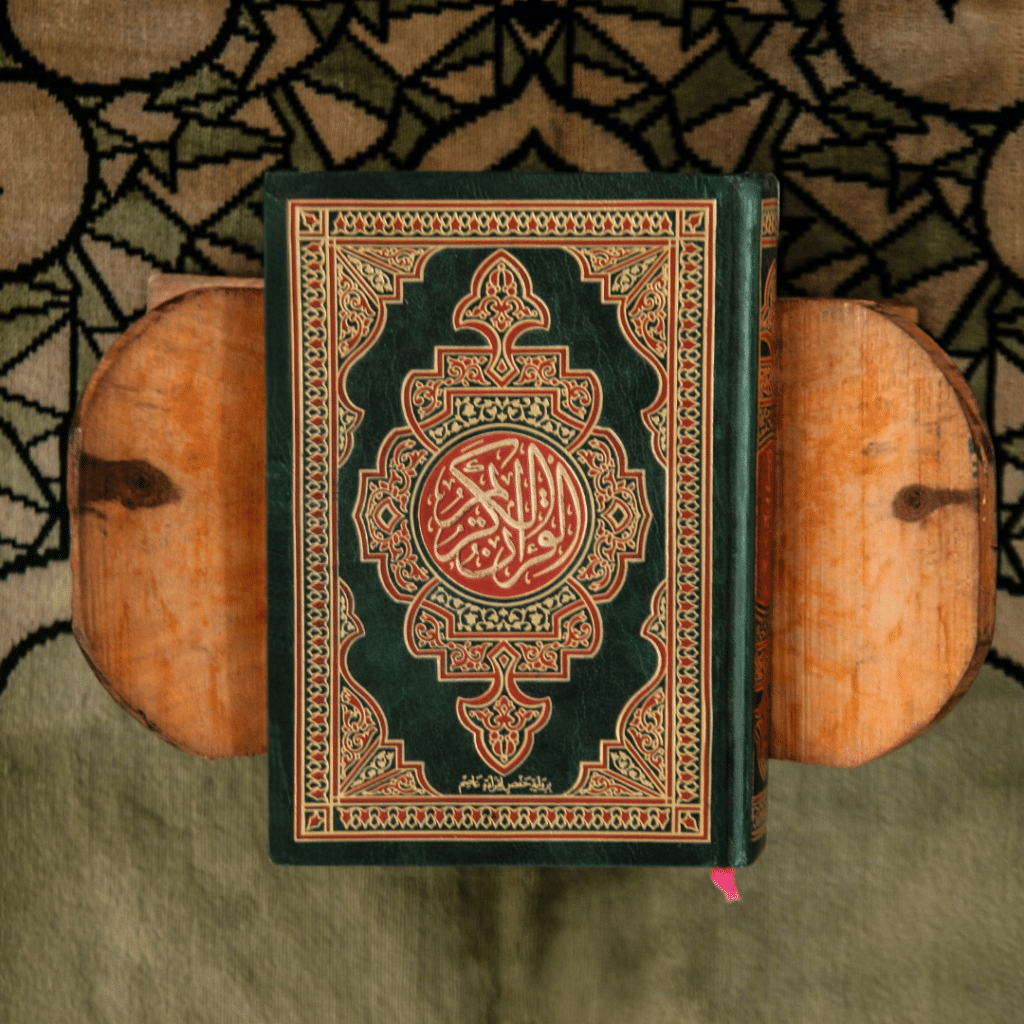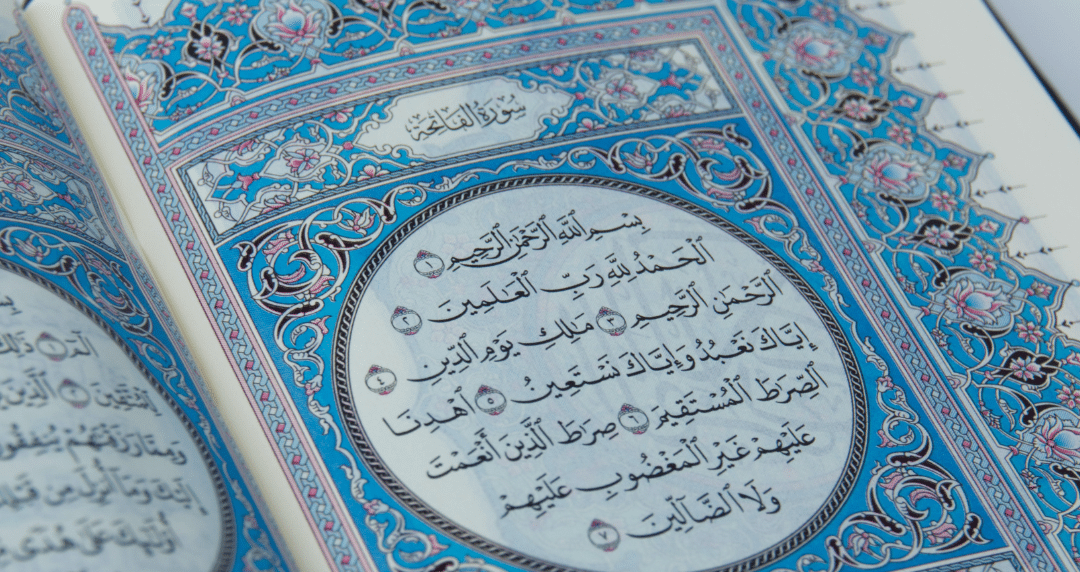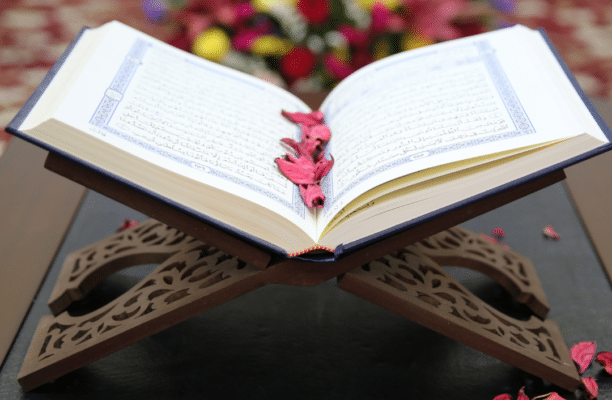In Islam, the term ‘aya’ holds significant importance and profound meaning within the faith. So, what does ‘aya’ mean exactly in the context of Islam? An ‘aya’ refers to a verse in the Holy Quran, the central religious text of Islam. These verses are not merely words on a page but are considered divine revelations that provide guidance, wisdom, and spiritual nourishment to Muslims worldwide.
Understanding the interpretation and significance of each ‘aya’ is crucial in comprehending the teachings and principles of Islam. Each verse is believed to contain layers of meaning and wisdom, offering insights into faith, morality, history, and the nature of Allah. Therefore, delving into the depths of each ‘aya’ is essential for Muslims seeking spiritual enlightenment and a deeper connection to their religion.
By exploring the meanings behind the ‘aya’ and reflecting on their relevance in daily life, believers can strengthen their faith, gain wisdom, and find guidance in navigating the complexities of the modern world. The Quranic ‘aya’ serves as a beacon of light, illuminating the path for those who seek knowledge, solace, and spiritual growth within the teachings of Islam.
Understanding Aya in Islam
In Islam, the term ‘aya’ holds profound significance, representing more than just a mere verse of the Quran. It encapsulates layers of divine wisdom and guidance, intricately woven into the fabric of the Quran. Let’s delve into the essence of ‘aya’ and its portrayal within the Islamic context.
The Definition of Aya
When we speak of ‘aya’ in Islamic teachings, we are referring to a verse within the Quran or a tangible sign from Allah. The literal translation of ‘aya’ means “sign” or “miracle,” underscoring its miraculous nature. Each ‘aya’ in the Quran is a testament to Allah’s omnipotence and serves as a beacon of enlightenment for believers worldwide.
The interpretation of ‘aya’ transcends the boundaries of mere words on a page; it symbolizes a profound spiritual journey for those who seek to unravel its deeper meanings. Just as the universe is replete with signs of Allah’s existence, each ‘aya’ in the Quran beckons believers to reflect, ponder, and draw inspiration from the divine message.
Aya in the Quran
Within the Quran, every ‘aya’ is a divine revelation, meticulously crafted to offer guidance, wisdom, and legislation to the faithful. As believers recite and contemplate each ‘aya,’ they are not merely reading words but connecting with a higher spiritual realm. The Quranic ‘aya’ serves as a conduit between the earthly realm and the celestial realm, channeling Allah‘s eternal wisdom and mercy.
Moreover, the Quranic ‘aya’ is imbued with a sense of majesty and authority, commanding reverence and contemplation. It serves as a roadmap for righteous living, delineating the boundaries of halal (permissible) and haram (forbidden) actions. Through the ‘aya,’ believers are reminded of their duty to uphold the teachings of Islam and seek solace in the divine words revealed by Allah.
In essence, ‘aya’ in Islam transcends linguistic boundaries, inviting believers to embark on a spiritual quest of introspection and enlightenment. As you navigate the verses of the Quran, each ‘aya’ reveals a glimpse of Allah’s infinite mercy and wisdom, guiding you on the path of righteousness and spiritual fulfillment.

Significance of Aya in Islamic Teachings
In the world of Islamic teachings, the term ‘aya’ holds immense significance and weight. An ‘aya’, which translates to ‘verse’ in English, plays a pivotal role in guiding Muslims on their spiritual journey. These verses are not merely words on a page but are considered divine revelations from Allah, offering profound insights and wisdom to believers seeking clarity and direction in their lives.
Aya as a Source of Guidance
For Muslims, each ‘aya’ in the Quran functions as a beacon of light in the darkness, illuminating the path of righteousness and virtue. These verses are not only a means of recitation but serve as a source of timeless guidance that transcends individual circumstances and challenges. When faced with dilemmas or uncertainties, turning to the Quran and pondering upon its ‘ayat’ can provide solace and solutions rooted in faith and piety.
Reflecting on Ayat
Encouraging reflection on the ‘ayat’ one encounters in the Quran is a practice that nurtures spiritual growth and understanding. Each verse has the potential to evoke profound contemplation and introspection, prompting believers to delve deeper into their faith and relationship with Allah. By internalizing the meanings embedded in these divine revelations, individuals can witness a transformative shift in their beliefs, behaviors, and attitudes, shaping them into better versions of themselves.
In essence, the ‘ayat’ in the Quran are not mere words but living, breathing entities that have the power to ignite faith, instill wisdom, and offer solace to those who seek enlightenment. Embracing the teachings encapsulated in these verses is not just a practice but a journey towards spiritual fulfillment and a deeper connection with the divine.
Interpreting Ayat in Islam
Interpreting ‘ayat’ in Islam delves into a profound journey of understanding the sacred verses of the Quran. Scholars and theologians bring diverse perspectives to the table, enriching our comprehension of these divine messages. Each interpretation is like a unique prism, refracting the light of wisdom and guidance in different ways.
Scholarly Perspectives on Ayat:
Scholars approach the interpretation of ‘ayat’ with meticulous care, employing various methodologies to unveil the layers of meaning encapsulated within the Quranic verses. Some delve deep into linguistic analysis, dissecting every word for its nuanced connotations. Others focus on the historical context of revelation, shedding light on the circumstances that shaped the divine discourse.
Contextual Understanding of Ayat:
Understanding the historical and cultural context surrounding the revelation of ‘ayat’ is akin to unlocking a treasure trove of wisdom. The significance of these verses becomes more pronounced when viewed through the lens of the past. By contextualizing ‘ayat’, we bridge the gap between antiquity and modernity, allowing the timeless lessons of the Quran to resonate with us today.
Practical Application of Ayat in Daily Life
In the hustle and bustle of everyday life, finding moments of spiritual connection and guidance can be a source of strength and solace for many Muslims. The teachings of the Quran, encapsulated in the form of ‘ayat’, offer profound wisdom that can be applied to various aspects of daily living. Let’s delve into two key ways in which ‘ayat’ can be practically integrated into your day-to-day experiences.
Inspirational Ayat for Personal Reflection
Reflecting on specific ‘ayat’ can serve as a powerful means of drawing inspiration and fostering personal growth. Take, for instance, the verse “So, surely with hardship comes ease” (Quran 94:6). In times of adversity, this ayah offers reassurance that challenges are often followed by moments of relief, instilling hope and perseverance in the face of difficulties.
Another verse that resonates deeply with personal reflection is “And He found you lost and guided [you]” (Quran 93:7). This ayah serves as a reminder of the mercy and guidance provided by Allah during times of confusion or doubt, urging individuals to trust in His divine plan and seek guidance through prayer and contemplation.

Applying Ayat Ethics in Social Interactions
The ethical teachings embedded in ‘ayat’ also play a crucial role in guiding Muslims in their interactions with others. Consider the verse “O believers! Stand firm for justice as witnesses for Allah even if it is against yourselves, your parents, or close relatives.” (Quran 4:135). This ayah emphasizes the importance of upholding justice and integrity in all social dealings, even if it means holding oneself or loved ones accountable.
Moreover, the verse “
And not equal are the good deed and the bad. Repel [evil] by that [deed] which is better; and thereupon, the one whom between you and him is enmity [will become] as though he was a devoted friend.” (Quran 41:34) underscores the transformative power of responding to negativity with kindness and compassion. By embodying these ethical principles in their interactions, Muslims can cultivate harmonious relationships based on empathy and understanding.
Integrating the teachings of ‘ayat’ into daily life isn’t just about reciting verses but embodying their essence through actions and intentions. By seeking inspiration from the Quran and applying its guidance in personal reflections and social interactions, individuals can nurture a deeper connection with their faith and strive to live in accordance with Islamic values, fostering a sense of purpose and spiritual fulfillment in their daily lives.
Final Thoughts on Aya Meaning in Islam
After delving into the intricate layers of the meaning of ‘aya’ in Islam, you are now equipped with a deeper understanding of its significance in the spiritual realm. Let’s reflect on the key takeaways and why internalizing ‘ayat’ is vital for your spiritual journey:
Embrace Interpretation as a Personal Journey
When exploring the ‘aya’ meaning in Islam, remember that interpretations can vary based on individual perspectives and experiences. Embrace this diversity of thought as a means to enrich your understanding and connection with the divine teachings.
Seek Guidance for Practical Application
As you navigate the practical applications of ‘ayat’ in your daily life, seek guidance from scholars, mentors, and your inner self. Utilize the wisdom conveyed in the ‘ayat’ to navigate challenges, make decisions, and find solace in moments of uncertainty.
Nurture Spiritual Growth Through Reflection
Engage in regular reflection on the ‘ayat’ you hold dear. Allow the profound meanings to resonate within you, nurturing your spiritual growth and strengthening your relationship with your faith.
Harness ‘Ayat’ for Personal Transformation
View each ‘aya’ as a beacon of light illuminating your path towards personal transformation. Let the words inspire you to embody virtues, cultivate compassion, and strive for excellence in all facets of your life.
Cultivate a Lifelong Learning Journey
Remember that the study of ‘ayat’ is not a destination but a lifelong journey. Stay curious, delve deeper into the meanings, and let each ‘aya’ guide you towards continuous self-improvement and spiritual enlightenment.
Conclusion
Understanding the true meaning of ‘aya’ in Islam is a gateway to a deeper connection with your faith. Each Quranic verse is a beacon of wisdom and guidance, waiting to illuminate your spiritual journey. Embrace the beauty and significance of ‘aya’ in your life, and let it enrich your understanding of the teachings of the Quran. Dive into the verses with an open heart and mind, and let the divine words resonate with your soul. May your exploration of ‘aya’ lead you to a profound spiritual awakening and a closer bond with Allah. Peace be upon you.
If you are interested in teaching Quran online or want to learn Quran online join us today by sending us an email on our contact form!



